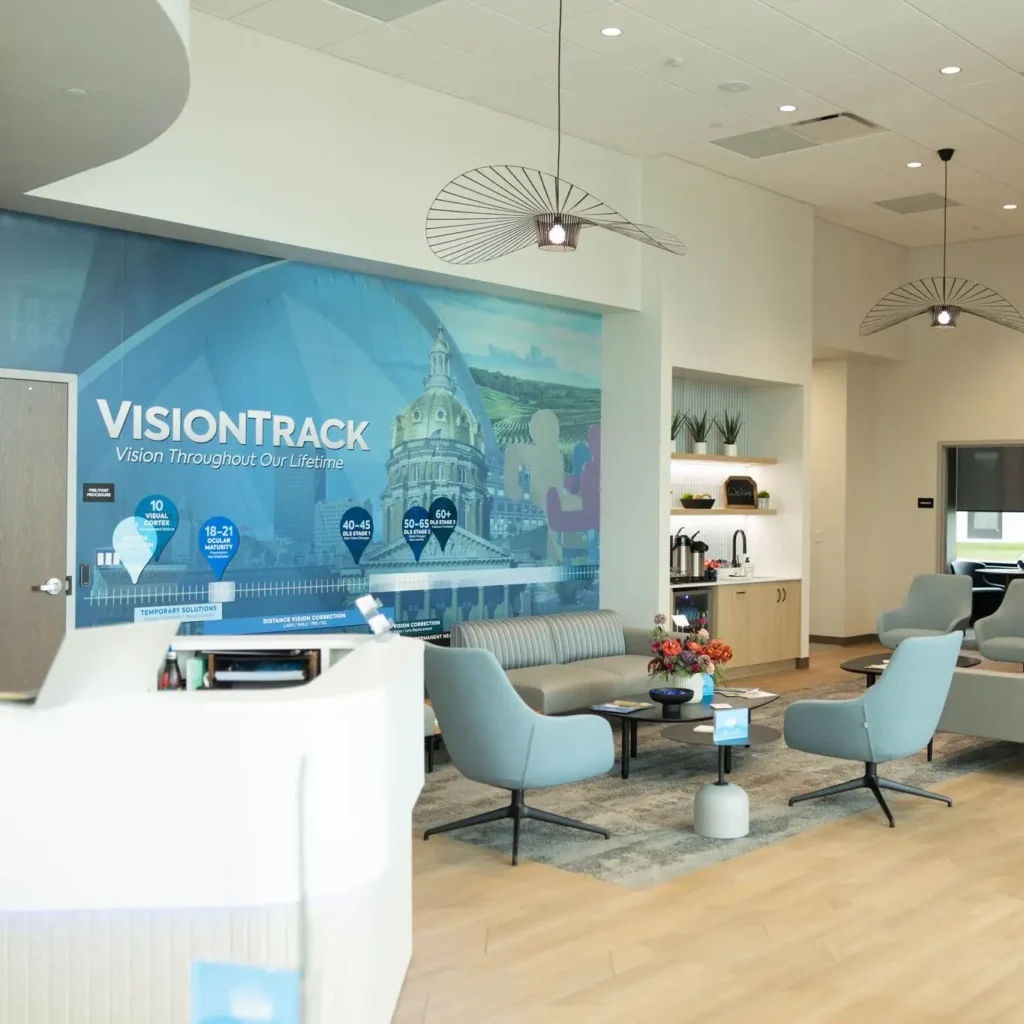Laser Cataract Surgery
Laser Cataract Surgery is a precise, bladeless procedure that uses advanced laser technology to remove cloudy lenses—ideal for those seeking greater accuracy and customized vision correction.
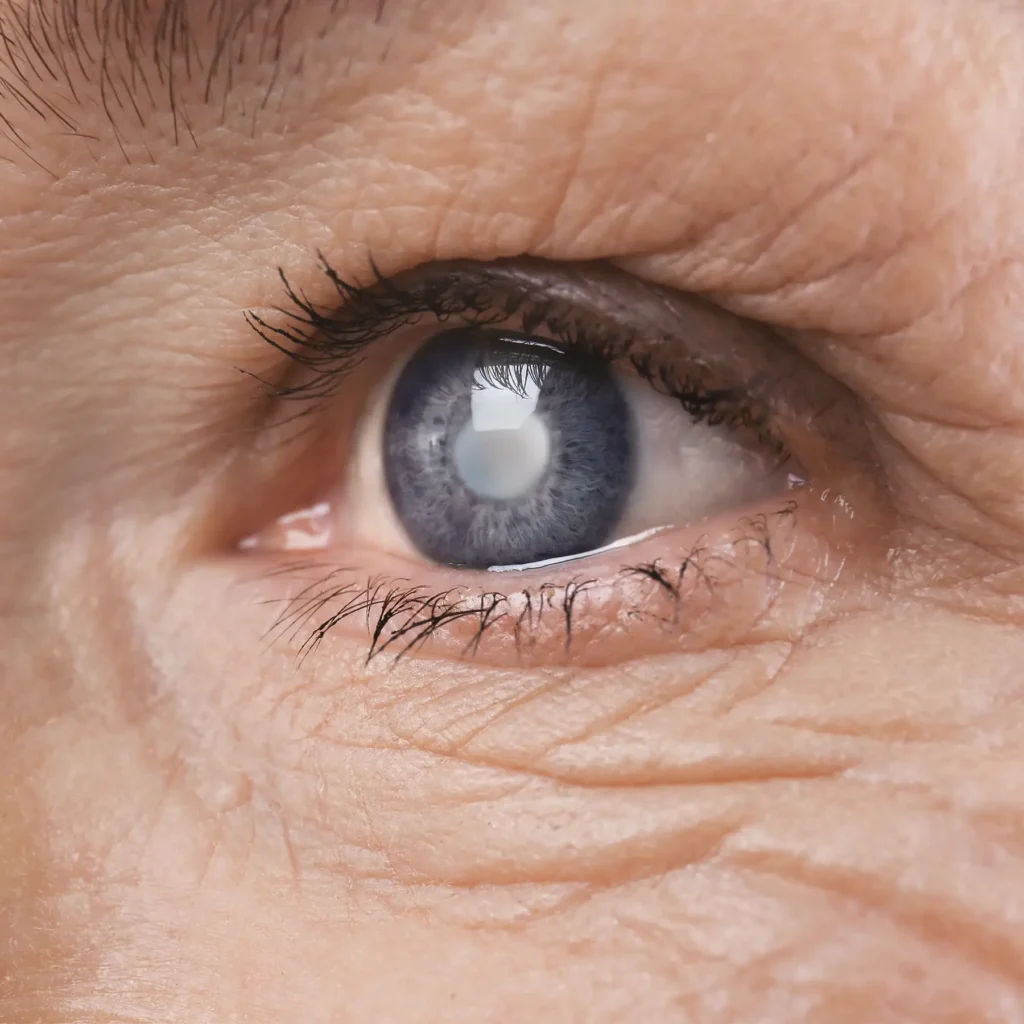
What is Laser Cataract Surgery?
Laser cataract surgery is an advanced technique that uses laser technology instead of a traditional surgical blade to remove cataracts and restore clear vision. This approach represents a major advancement in ophthalmology, building on the rapid progress seen in other areas of laser eye surgery. Just as LASIK has revolutionized vision correction over the past two decades, laser-assisted cataract surgery offers a level of precision and customization that was previously unattainable. Cataracts are a common age-related condition that will form in everyone given enough time. Most people need cataract surgery in their late 60’s or early 70’s. With FDA-approved laser technology, this procedure enhances accuracy in key steps of cataract surgery, allowing for a more refined and personalized approach to vision restoration. At MVC, this innovation ensures patients receive state-of-the-art treatment designed to improve their quality of life with the clearest vision possible.
- Safe & Effective
Why Choose MVC for Laser Cataract Surgery?
- Cataract Surgery Streamlined: Same-day treatment for both eyes means faster recovery, fewer visits, and a smoother path to clear vision.
- Vision Correction Specialists: LASIK, SMILE, or advanced lenses—modern vision correction is our exclusive focus.
- All 7 Modern Vision Options: Unlike places that offer only LASIK, we offer all 7 modern laser vision correction options—so you get the procedure that’s right for your eyes.
- In-Depth Eye Exams: Our EyeAnalysis provides the region’s most detailed eye health evaluation—front to back, top to bottom.
- Expert-Certified Team: Our surgeons include fellows certified by the World College of Refractive Surgery and Visual Sciences.
- Exceptional Patient Experience: Relax in our welcoming spa-like clinic—enjoy no wait times and personalized care from start to finish.
- Award-Winning Excellence: Built on Kugler Vision’s patient-first standards—a decade-long Best of LASIK practice winner.
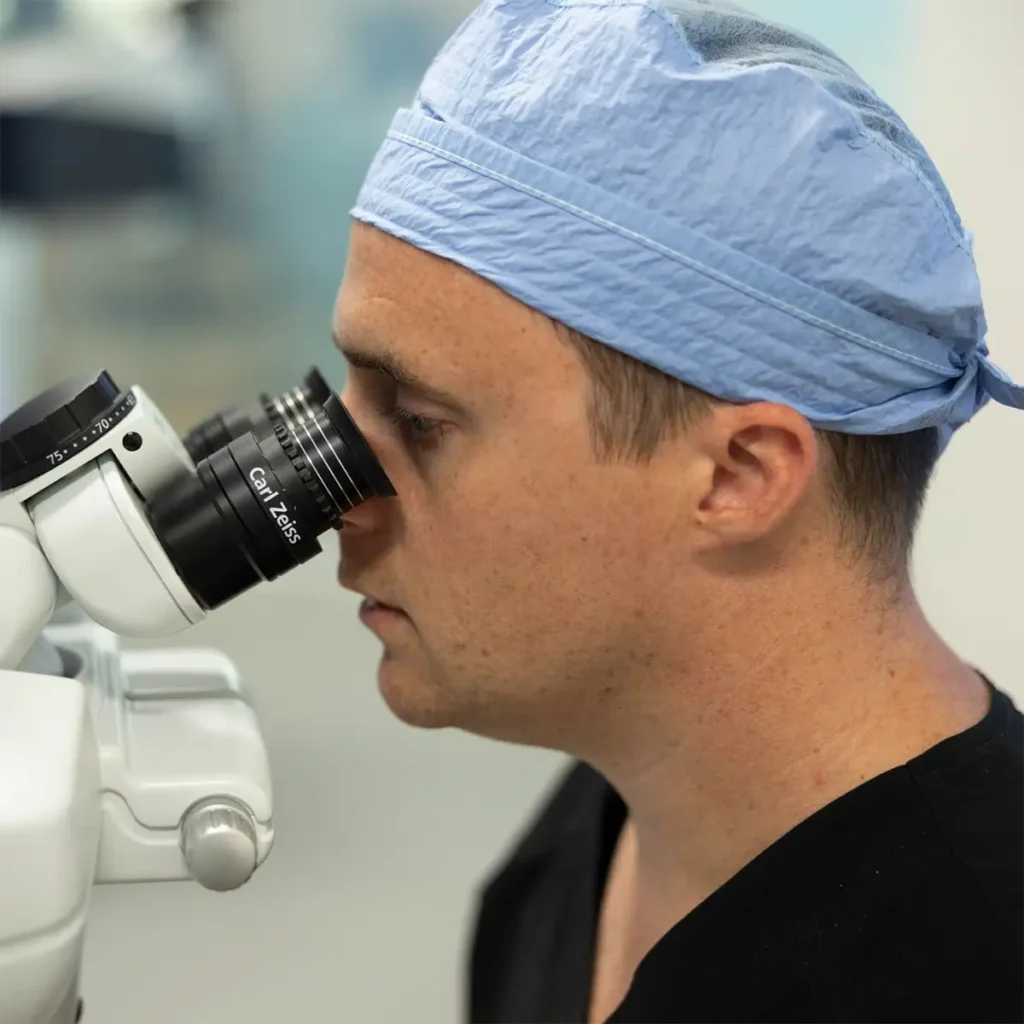
Your Clear Vision Starts Here
Take the first step—see if you're a candidate now.
Meet Your MVC Laser Cataract Surgeons

Brandon Menke, MD
Board-Certified Ophthalmologist & Cataract Correction Expert
Dr. Brandon Menke is a fellowship-trained ophthalmologist with advanced research in retinal regeneration and a strong surgical background. Having completed thousands of cataract surgeries, he is a respected educator and Navy Reserve officer. He brings trusted expertise and personalized care to every patient.

Drew Dickson, MD, PCEO
Board-Certified Ophthalmologist & LASIK Surgeon
Dr. Drew Dickson is the only World College of Refractive Surgery and Visual Sciences certified vision correction specialist in the state of Iowa. He specializes in all 7 modern forms of vision correction surgery, delivering, delivering trusted results through precision, experience, and patient-first care.
Our Laser Cataract Surgery Locations

What are the symptoms of cataracts?
- Blurry, cloudy, or hazy vision that may worsen over time
- Increased sensitivity to light and glare, especially in bright sunlight or while driving at night
- Difficulty seeing clearly in low-light conditions or at night
- Colors appearing faded, less vibrant, or with a yellowish tint
- Seeing halos around lights
- Frequent changes in eyeglass or contact lens prescriptions
- Double vision or ghosted images in one eye
- Needing brighter lighting for reading or detailed tasks
It’s important to note that cataract symptoms can vary, and not everyone will experience all of them. At MVC, we specialize in diagnosing and treating cataracts with the most advanced technology available, helping patients regain clear vision and improve their quality of life.
Benefits of Laser Cataract Surgery
- A quick procedure with minimal to no discomfort
- Enhanced safety and precision with computer-guided laser technology
- More accurate and consistent results by reducing the potential for human error
- Improve astigmatism correction
- Advanced 3D imaging for a highly customized surgical approach
- Laser-created incisions that are more precise, heal faster, and lower the risk of complications
- A gentler, less invasive cataract removal process
At MVC, we utilize cutting-edge laser technology to provide a safer, more precise, and customized cataract surgery experience, helping our patients achieve the best possible vision outcomes.

Laser Cataract Surgery Intraocular Lens Options
During laser cataract surgery at MVC, the clouded natural lens is replaced with an intraocular lens (IOL) that restores clear vision by focusing light properly on the retina. MVC offers a range of advanced IOL options designed to improve vision at various distances and reduce dependence on glasses. The best lens for each patient depends on individual vision needs and lifestyle, and our surgeons will provide personalized recommendations during a cataract consultation.
Light Adjustable Lens (LAL)
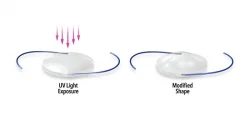
Multifocal & Trifocal IOLs
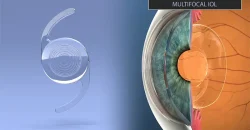
Extended Depth of Focus (EDOF) IOLs
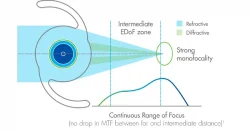
Astigmatism-Correcting (Toric) IOLs

Monofocal IOLs

Choosing the right IOL is an important decision, and at MVC, our surgeons will recommend the best option for your vision needs. Our surgeons use the latest technology to ensure the most precise and customized cataract surgery experience, allowing patients to enjoy clearer vision and a better quality of life.
How does Laser Cataract Surgery work?
Laser cataract surgery at MVC uses the newest femtosecond laser technology to enhance precision and customization in cataract removal. The procedure begins with high-resolution imaging, creating a detailed 3D map of the eye to guide the laser. The laser then makes precise corneal incisions, performs a perfectly circular capsulotomy, and softens the clouded lens by breaking it into small fragments. This reduces the amount of ultrasound energy needed for removal, making the procedure gentler on the eye.
Once the laser has completed its job, the surgeon removes the fragmented lens using phacoemulsification and implants an intraocular lens (IOL) to restore clear vision. The femtosecond laser technology ensures precise incisions and lens placement without generating heat or damaging surrounding tissues. By reducing reliance on manual techniques, laser cataract surgery at MVC provides a safer, more accurate procedure with improved visual outcomes and faster recovery.
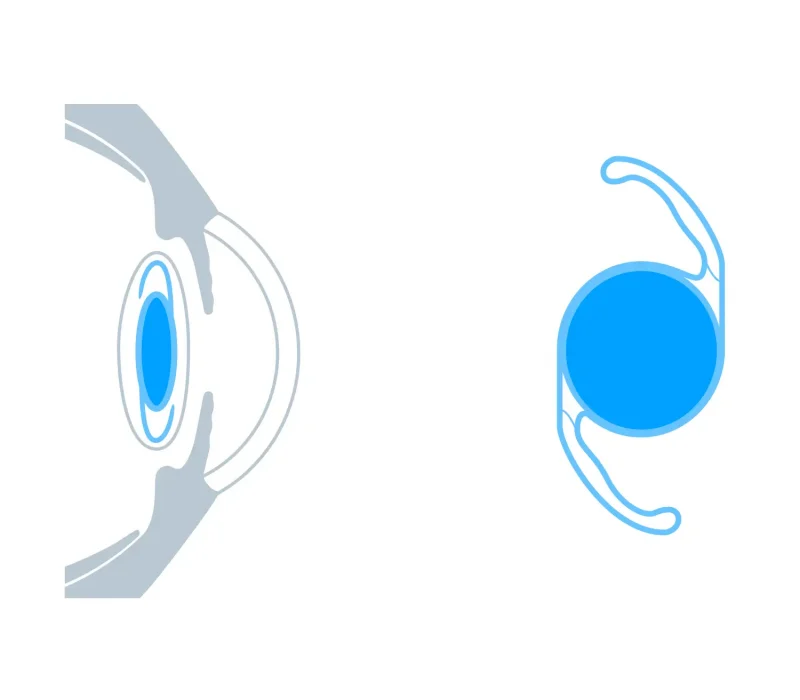
our reviews
Our Patients Love What We Do
Hear from real patients whose lives have been transformed by clearer vision and compassionate, expert care at MVC.
Mary A.
Cataract Patient
Marcia W.
Cataract Patient
Jack B.
Cataract Patient

Laser Cataract Surgery: What to Expect
Laser cataract surgery at MVC is a quick, outpatient procedure that typically takes about 10 to 15 minutes, The procedure is quick and painless, and you’ll be on your way home within a few hours, so be sure to have a friend or family member ready to drive you. You’ll need to wear a protective shield while sleeping the first night and you will also receive sunglasses to help with light sensitivity, as the world will appear noticeably brighter with the cloudy cataract removed. Some mild dryness, itching, or blurriness is normal at first, but most patients notice an improvement in their vision within days. Temporary glare or halos may occur as your eyes adjust, but these effects fade over time.
Mild irritation, dryness, or scratchiness is normal in the first few days, and vision may be blurry as your eye adjusts to the new lens. Your eye may stay dilated for up to 24 hours, and some fluctuation in clarity is expected as healing progresses. Prescription eye drops will be provided to reduce inflammation and support healing, and it’s important to follow the recommended schedule. Most patients return to normal activities within a couple days, and a follow-up visit will ensure everything is healing properly. Full recovery takes about a month, but the results—sharper, clearer vision—are life-changing.
What is the difference between Laser Cataract Surgery and Traditional Cataract Surgery?
Laser cataract surgery enhances precision by using a computer-guided femtosecond laser to perform key steps, while traditional cataract surgery relies on manual techniques. The laser creates more precise incisions, a perfectly circular lens capsule opening, and softens the cataract for easier removal, reducing the need for ultrasound energy. This can lead to a smoother recovery and faster visual improvement. Laser technology can also correct minor astigmatism during surgery, which traditional methods cannot. Both approaches are safe and effective, but at MVC, we offer customized recommendations to ensure the best outcome for each patient.
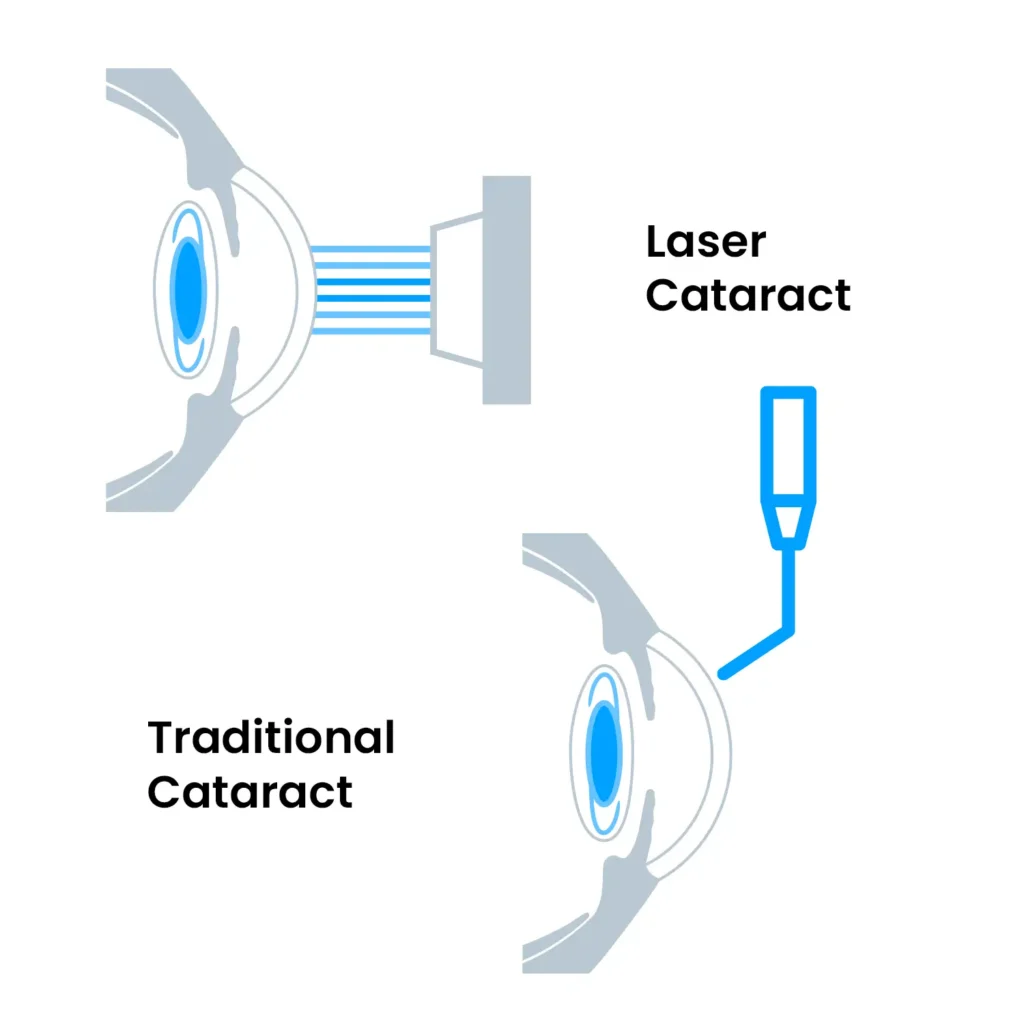
FAQ's About Laser Cataract Surgery
How long does laser cataract surgery take?
What is the recovery process like after laser cataract surgery?
Will I have to stay in the hospital after laser cataract surgery?
No, laser cataract surgery is an outpatient procedure, so there is no need for an overnight hospital stay. In fact, at MVC, your surgery will be performed down the hall from where you had your initial examination. Patients rest briefly in a recovery area before going home the same day. MVC provides thorough post-operative instructions to ensure a safe and comfortable recovery at home. Although some patients feel slightly drowsy from sedation, most can resume light activities the following day. Protecting the eye, following the prescribed drop schedule, and attending follow-up visits are essential for optimal healing and long-term visual improvement.
Does Medicare cover laser cataract surgery?
Can cataracts come back after laser cataract surgery?
Once a cataract is removed, it cannot return. However, after cataract surgery most patients develop posterior capsular opacification (PCO), often referred to as a “secondary cataract.” This occurs when the thin membrane that holds the artificial lens becomes cloudy over time, affecting visual perception. If this happens, a quick, painless laser treatment called a YAG capsulotomy can restore clear vision in minutes. MVC offers this simple procedure when necessary to ensure patients continue to enjoy the benefits of their cataract surgery long-term.
When is it too late to have laser cataract surgery?
How soon can I get reading glasses after laser cataract surgery?
What are the different intraocular lens (IOL) options for laser cataract surgery?
What are the benefits of laser cataract surgery compared to traditional cataract surgery?
What are the most common after effects of laser cataract surgery?
Start Your Journey to Visual Freedom
At Modern Vision Centers, your path to clearer, sharper vision begins with a personalized approach designed to meet your unique eyes and lifestyle.
STEP 1
Initial Exam
STEP 2
Custom Procedure
Your vision correction procedure is tailored to your eye’s anatomy, using cutting-edge technology for precision and optimal results.
STEP 3




